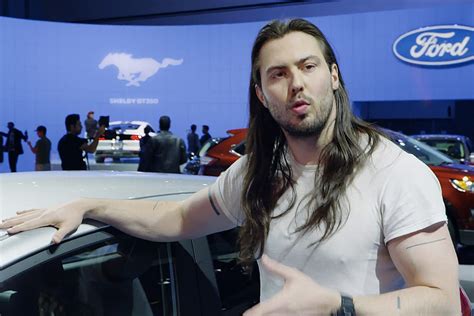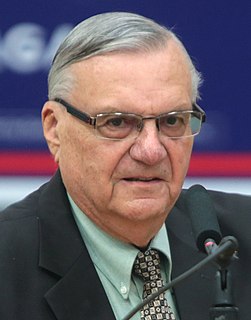A Quote by Earl Warren
The abhorrence of society to the use of involuntary confessions does not turn alone on their inherent untrustworthiness. It also turns on the deep-rooted feeling that the police must obey the law while enforcing the law; that, in the end, life and liberty can be as much endangered from illegal methods used to convict those thought to be criminals as from the actual criminals themselves.
Related Quotes
A lot of the people who are supposed to be enforcing the crime, enforcing the law, are also criminals. They've suppressed something in their childhood and they don't want to think they themselves were sexually abused as children or they are abusing their own children and they're sitting on a bench and they either can't admit it, won't admit it, depending on how deeply buried it is.
The gun control mentality is ruthlessly absurd. It suggests that you pass a law which will bind law-abiding citizens — they won't have access to weapons. Now, we know that criminals, by definition, are people who don't obey laws. Therefore, you can pass all the laws that you want, they will still have access to these weapons, just as they have access to illegal drugs and other things right now. That means you end up with a situation in which the law-abiding folks can't defend themselves, and the crooks have all the guns.
Most laws that we make to protect people from guns are usually ignored by the criminals and obeyed by the law-abiding people. And so I think that if you had better data, there'd be no one more in favor of it than law abiding gun owners because they don't want to be smeared and lumped in with the criminals who use guns.
People - pardon me, journalists and politicians - have often accused me of believing that I'm above the law. And yet, who isn't? Everywhere you prod it, even with the shortest stick, the established system isn't simply corrupt, it's unequivocally putrescent. The law is created by demonstrable criminals, enforced by demonstrable, interpreted by demonstrable criminals, all for demonstrably criminal purposes. Of course I'm above the law. And so are you.
Convictions following the admission into evidence of confessions which are involuntary, i.e., the product of coercion, either physical or psychological, cannot stand. This is so not because such confessions are unlikely to be true but because the methods used to extract them offend an underlying principle in the enforcement of our criminal law: that ours is an accusatorial, and not an inquisitorial, system - a system in which the State must establish guilt by evidence independently and freely secured, and may not, by coercion, prove its charges against an accused out of his own mouth.
Government should enforce rule of law. It should enforce contracts, it should protect people bodily from being attacked by criminals. And when the government does those things, it is facilitating liberty. When it goes beyond those things, it becomes destructive to both human happiness and human liberty.
I do not agree with the use of 'signing statements' to effectively act as a line-item veto, except when the President believes a law or a provision within a law is unconstitutional.In general, if a President signs a law, they are committing themselves to enforcing it. If they don't believe it should become a law, they should veto it.
For those who have only to obey, law is what the sovereign commands. For the sovereign, in the throes of deciding what he ought to command, this view of law is singularly empty of light and leading. In the dispersed sovereignty of modern states, and especially in times of rapid social change, law must look to the future as well as to history and precedent, and to what is possible and right as well as to what is actual.






























